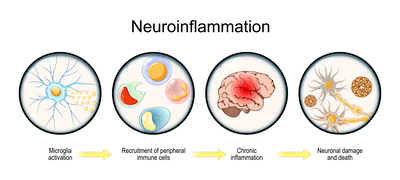Brain Boosters from the Hive:
The Surprising Neuroprotective Benefits
of Brown, Green, and Red Propolis
By Mark J Kaylor
 Propolis, a resinous substance produced by bees from plant sources, has been used for centuries in traditional medicine for its wide range of health benefits. Recent scientific research has started to uncover the potential of propolis in promoting brain health and function. This blog delves into the unique properties of brown, green, and red propolis, examining the evidence behind their neuroprotective benefits.
Propolis, a resinous substance produced by bees from plant sources, has been used for centuries in traditional medicine for its wide range of health benefits. Recent scientific research has started to uncover the potential of propolis in promoting brain health and function. This blog delves into the unique properties of brown, green, and red propolis, examining the evidence behind their neuroprotective benefits.
Propolis is a complex substance, composed of various resins, beeswax, and essential oils, enriched with bioactive compounds like flavonoids, phenolic acids, and aromatic acids. The composition of propolis varies depending on its botanical source, resulting in different types: brown, green, and red propolis. Each of these types has distinct properties that may contribute to brain health.
Brown Propolis: A Natural Defender Against Neuroinflammation
Brown propolis, the most commonly available type, is rich in flavonoids and phenolic acids, compounds known for their antioxidant and anti-inflammatory properties. Research has shown that oxidative stress and chronic inflammation are key contributors to neurodegenerative diseases such as Alzheimer’s and Parkinson’s disease.
A study published in Molecular Neurobiology highlighted that brown propolis can reduce oxidative damage and inhibit inflammatory pathways in brain cells. The flavonoids in brown propolis, such as chrysin and pinocembrin, have been found to modulate the activity of microglia, the brain’s primary immune cells, reducing the release of pro-inflammatory cytokines. This action helps protect neurons from inflammatory damage, potentially lowering the risk of neurodegenerative diseases.
Green Propolis: the Brazilian Secret for Brain Protection
Green propolis, predominantly sourced from Brazil, owes its color to the plant Baccharis dracunculifolia, a common source of resin for bees in the region. This type of propolis is particularly rich in artepillin C, a compound with strong antioxidant properties.
Research published in the Journal of Ethnopharmacology demonstrated that green propolis exerts neuroprotective effects by enhancing the brain’s antioxidant defenses. In animal models, green propolis supplementation was associated with improved cognitive function, reduced oxidative stress markers, and enhanced memory retention. The potent antioxidant activity of artepillin C and other polyphenols in green propolis may help to protect brain cells from the oxidative damage linked to aging and neurodegeneration.
Moreover, another study found that green propolis might also play a role in modulating neurotransmitter levels in the brain. It was observed to increase the levels of acetylcholine, a neurotransmitter critical for learning and memory, suggesting a potential benefit in conditions like Alzheimer’s disease where acetylcholine levels are diminished.
Red Propolis: A Treasure Trove of Neuroprotective Compounds
Red propolis is less common than its brown and green counterparts and is primarily found in regions like Brazil and Cuba. Its distinctive color is due to the presence of compounds like isoflavonoids and polyphenols.
Red propolis has garnered attention for its robust anti-inflammatory and antioxidant properties. A study in the Journal of Agricultural and Food Chemistry explored the neuroprotective potential of red propolis, showing that it could protect neurons from glutamate-induced toxicity, a common pathway leading to neuronal death in neurodegenerative diseases.
Furthermore, the unique isoflavonoids found in red propolis have been studied for their estrogenic activity, which could be beneficial for brain health, particularly in postmenopausal women. Estrogen has been known to exert protective effects on the brain, and its decline during menopause is associated with an increased risk of cognitive decline. Red propolis, through its estrogenic effects, may help mitigate this risk.
Integrating Propolis into Brain Health Regimens
 The research surrounding propolis and brain health is promising, suggesting that this natural substance could be a valuable tool in supporting cognitive function and protecting against neurodegeneration. However, it’s important to note that while the studies mentioned are encouraging, most of the research has been conducted in animal models or in vitro. Human clinical trials are necessary to fully establish the efficacy and safety of propolis for brain health.
The research surrounding propolis and brain health is promising, suggesting that this natural substance could be a valuable tool in supporting cognitive function and protecting against neurodegeneration. However, it’s important to note that while the studies mentioned are encouraging, most of the research has been conducted in animal models or in vitro. Human clinical trials are necessary to fully establish the efficacy and safety of propolis for brain health.
For those interested in incorporating propolis into their wellness routine, it is recommended to choose high-quality propolis from reputable sources, and consult with a healthcare provider, especially if you have pre-existing health conditions or are taking medication.
Propolis and the Path to Cognitive Vitality
 The distinct types of propolis—brown, green, and red—each offer unique neuroprotective benefits, from reducing inflammation and oxidative stress to supporting neurotransmitter function and estrogenic activity. As research continues to evolve, propolis may become a more prominent player in the natural approach to maintaining brain health and preventing cognitive decline. For now, it remains a fascinating and promising area of study within the field of neuroprotection.
The distinct types of propolis—brown, green, and red—each offer unique neuroprotective benefits, from reducing inflammation and oxidative stress to supporting neurotransmitter function and estrogenic activity. As research continues to evolve, propolis may become a more prominent player in the natural approach to maintaining brain health and preventing cognitive decline. For now, it remains a fascinating and promising area of study within the field of neuroprotection.
Propolis is more than just a natural remedy; it’s a potential ally in the fight against neurodegenerative diseases. With ongoing research, we can hope to unlock even more of its secrets and harness its full potential for brain health.
Mark J. Kaylor is a passionate advocate for holistic health and natural remedies, with a focus on extending both lifespan and healthspan. As the founder of the Radiant Health Project and host of Radiant Health Podcast, Mark blends in-depth research with traditional wisdom to empower others on their journey to vibrant health. Through his writing and speaking, he shares insights into the transformative power of herbs, nutrition, and lifestyle practices.
Disclaimer: All information and results stated here is for educational and entertainment purposes only. The information mentioned here is not specific medical advice for any individual and is not intended to be used for self-diagnosis or treatment. This content should not substitute medical advice from a health professional. Always consult your health practitioner regarding any health or medical conditions.







